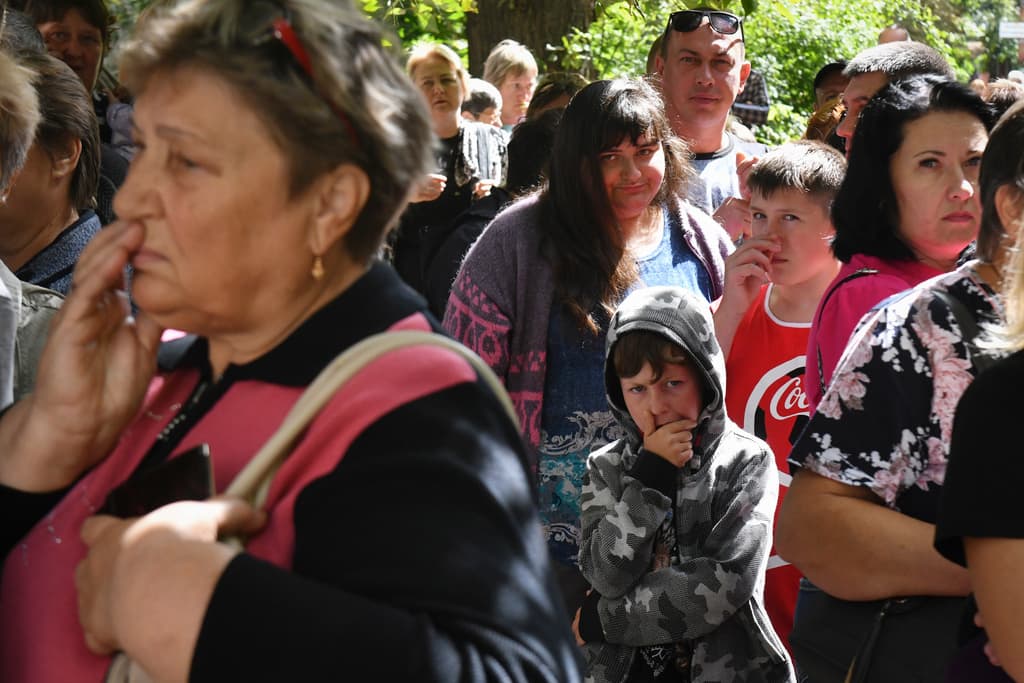We left things behind that we've collected over 50 years, but I don't want to go back, says an elderly and tearful woman as the independent Russian newspaper Novaja Gazeta speaks with her in the Russian city of Kursk, a few miles from the battles at the border with Ukraine.
During nearly two and a half years of war, millions of Ukrainians have been forced to flee their homes from the Russian invasion forces and regular air attacks. Since Ukraine's military launched a larger offensive across the border a week ago, the war has now also driven more than a hundred thousand Russians to flee.
The authorities' evacuations were delayed. Many residents fled on their own when the shelling began to thunder.
One of them, Ljubov, tells Mediazona how she and her family left home without any belongings:
We left our pets behind because we counted on being able to return. Now artillery fire, tank fire. Enemy forces are sitting along the forest and shelling all cars that come. Roads and fields are mined.
Some residents are still hiding in their homes, with limited contact with the outside world.
Not too sensational
The Ukrainian forces were able to, by taking a flawed Russian defense by surprise, advance at least a mile into Russia. Battles are raging on and Russia appears to need to redeploy forces from other front sections.
Previous advances from the Ukrainian side have been repelled within a few days, but this is a full-scale offensive with much more advanced capabilities and material. A successful Russian defense is estimated to take several weeks.
Russia's state-controlled media have been given directives to downplay Ukraine's advances, reports Meduza. They should not be highlighted as sensational – and there should be no talk of a new front, according to the Kremlin's orders.
Propaganda media primarily highlight alleged successful defense measures or authorities' relief efforts. The offensive is portrayed as part of a Western plot to destroy Russia.
Psychological price
Several analysts describe it as a Ukrainian gamble to take the war to Russia in this way. Militarily, it's about making Russia pay a high price to retake the border areas, writes British analyst Michael Clarke in The Times:
"Its political success depends on what it does to the psychology in Moscow; whether it sows genuine doubt in Putin's inner circle about whether the war is really worth the constantly increasing cost."
Since Russia launched the large-scale war of aggression in Ukraine in February 2022, the vast majority of all war deaths and destruction have occurred on Ukrainian soil.
Ukraine has also carried out attacks on targets in Russia, and they have become more frequent as the war has dragged on.
It has partly been shelling across the front line in border areas and attacks with projectiles from the air, such as drones that have reached far into Russia in attacks on, among other things, oil facilities and airfields. In 2023, drones struck several times in central Moscow.
On several occasions, armed forces have crossed or attempted to cross the border from Ukraine to Russia in smaller raids. Ukraine-supported groups of Russian resistance fighters, such as the Russian Freedom Legion and the Russian Volunteer Corps, have in 2023 and the spring of 2024 penetrated into Russia and briefly taken control of smaller communities before being pushed back.






